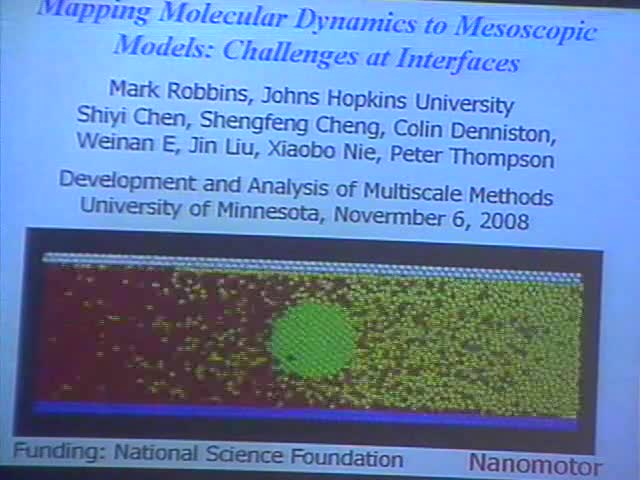Mapping molecular dynamics to mesoscopic models: Challenges at interfaces
Presenter
November 6, 2008
Keywords:
- Multiple scale methods
MSC:
- 34E13
Abstract
Many multiscale algorithms focus on the bulk. The rapid changes in composition and properties at interfaces between materials make them more challenging. The talk will address three strategies to incorporating interfacial behavior. The first section considers interfaces between a solid and a binary fluid mixture. Molecular simulations of binary fluid mixtures are fit to general flow boundary conditions for mesoscopic and sharp interface continuum models. Strong, counterintuitive flows are found, including plug flow with no driving pressure and Couette flow between stationary walls. The results can be described in terms of a slip velocity composed of three contributions that are proportional to the shear stress, the surface stress gradient and the concentration gradient. The second section discusses fits of fluid-fluid interface simulations to commonly used phase-field models. Fits to simulations of single phase behavior predict the interfacial tension and other properties. The surprising feature is that the prefactor of gradient squared terms in density is negative. The instability associated with this is cut off by the discreteness of atomic structure rather than higher order gradient terms. The third section of the talk describes hybrid atomistic/continuum models that retain an atomistic treatment of the interface, while using a continuum model for the bulk.
